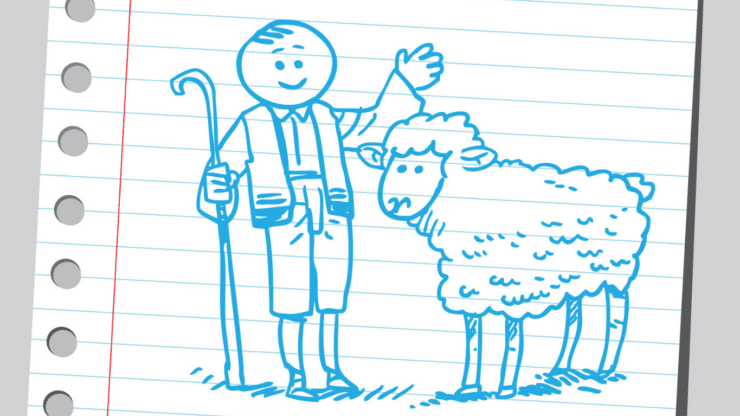Parental guilt is real. It can rear its ugly head at any moment, whether we’re worrying about our child’s grades, social skills, or overall happiness.
As parents, we want to do everything we can to ensure our children’s success, and feel responsible for their development and well-being. The pressure to be the perfect parent can be overwhelming, leading to feelings of inadequacy, anxiety, and self-doubt.
We try to provide them with the best education, opportunities, and experiences to help them succeed in life. However, Dr. Russell Barkley, a clinical psychologist and leading expert on child psychology and behavior, wants to take some of the burden from your shoulders. He claims there is a common misconception that parents have complete control over their child’s development.
In reality, your child’s genetics have nothing to do with you.
Dr. Barkley emphasized during a recent lecture that parents cannot design their children. Nature and evolution do not allow for such a thing to happen. As he explained, “Yet we have the Mozart effect; the belief that if I play classical music to my uterus when I’m pregnant I’m going to have a genius. The fact that if I can just put enough crib toys over his crib, he is going to have all these neurons exploding with synapses and be a brilliant mathematician. You don’t get that degree of power.”
The role of parents in a child’s development is not insignificant, but it is not deterministic either. Our parenting style, education, and social experiences can influence our child’s psychological traits and abilities to a certain extent. However, as Dr. Barkley pointed out, “Your child’s genetics have more to do with who they are than anything else.”
He explained that while a stimulation-rich environment is better than a deprived one, there is a threshold of stimulation that every normal brain needs to develop, and once you’ve passed that threshold, the rest is out of your hands. He said, “The idea that if a little bit of stimulation is good, a ton of it must be better, is a uniquely North American perspective.”
ALSO: Does Self-Directed Learning Breed Success?
He stressed that a child’s genetics are a crucial factor in their development, and are largely determined by factors that are inherited from the child’s biological parents: “Your child is a genetic mosaic of your extended family, a unique combination of traits that run in your family line.”
This idea that our child’s genetics are largely informed by inherited traits is a crucial point to consider as parents.
“Your child is born with more than 400 psychological traits that will emerge as they mature – and they have nothing to do with you,” he emphasized.
Be The Shepherd
So, what does this mean for parents? It means that we cannot engineer our child’s personality or potential through environmental factors alone. While we can provide a nurturing environment that supports our child’s natural abilities and encourages their growth and development, we cannot control or dictate their genetic makeup.
“Parents are the shepherds of their children’s lives, not the engineers,” Dr. Barkley explained.
The ‘engineering view’ posits that parents are responsible for everything that goes right (or wrong) with their children, which has led to an enormous increase in parental guilt “because parents believe it’s all about them,” and that if something isn’t right or if their child has a disability, it’s the parents’ failure. “This has nothing to do with your particular brand of parenting,” he assuages.
The parenting role is not without responsibility.
“Shepherds are powerful people,” said Dr. Barkley. “They pick the pastures in which the sheep will graze and develop and grow. They determine whether they’re properly nourished; they determine whether they’re protected from harm.”
ALSO: How Does ‘Gentle Parenting’ Actually Work?
Ultimately, our child’s genetics are beyond our control. We can provide a supportive environment that encourages their natural abilities and growth, but we cannot engineer their personality or abilities. As Dr. Barkley notes, “Parents can enjoy the show.” We can watch our child grow and develop without having to worry (too much) about whether or not we messed up the outcome.
As parents, it’s natural to want to shape our children’s lives and help them reach their full potential. However, the truth is that we cannot control or determine their genetic makeup. This fact can be both liberating and daunting, as it relieves us of the responsibility of designing our children’s outcomes, while also reminding us that we are not in complete control.
With a more freeing view of parenting, we can focus on being supportive and providing a nurturing environment that helps our children develop to their full potential. We can guide them, support them, and encourage them, and most importantly, enjoy watching our children grow without the undue burden of believing that we alone are responsible for their successes or failures.
As Dr. Barkley points out, “The environment is important, but it doesn’t design the sheep; no shepherd is going to turn a sheep into a dog – ain’t gonna happen.” Let us embrace this truth and focus on being the best shepherds we can be for our children, and the rest will fall into place.








Add comment